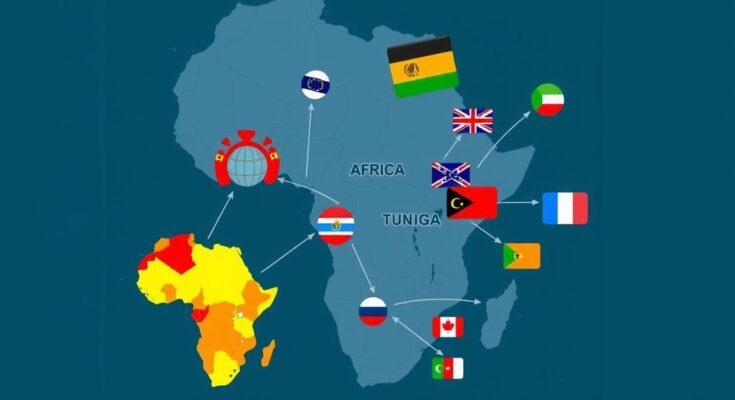The African Visa Openness Index (AVOI) 2024 reveals significant differences in visa policies among African countries, with Benin, Rwanda, Seychelles, and The Gambia providing visa-free access to all Africans. Ghana ranks fifth, with mixed policies from Cape Verde and Nigeria in sixth. The report suggests that restrictive visa policies hinder regional integration and stress the need for collaborative action to enhance free movement and economic cooperation across Africa.
The African Visa Openness Index (AVOI) 2024 presents an enlightening overview of visa policies across African nations, showcasing significant variations that impact regional mobility and integration. Leading the index are Benin, Rwanda, Seychelles, and The Gambia, each providing visa-free access to all African citizens. Following closely are Ghana in fifth place and Cape Verde and Nigeria, which share the sixth position, both of which exhibit a mixture of visa-free and visa-on-arrival policies. The subsequent entries in the top ten list include Guinea-Bissau, Mauritania, and Mauritius, who also adopt similar mixed approaches to visa regulations.
The report poignantly addresses the counterproductive nature of restrictive visa policies, which obstruct free movement and contradict the goals of the African Continental Free Trade Area (AfCFTA) as well as the African Union’s Agenda 2063. Furthermore, the findings indicate a correlation between a country’s income level and its openness to liberal visa policies; lower-income nations tend to exhibit greater receptiveness, whereas wealthier nations often enforce rigorous regulations, largely due to concerns regarding economic migration. This highlights an urgent need for enhanced collaboration among African countries to realize an integrated and seamless continent.
The African Visa Openness Index (AVOI) serves as a critical tool in assessing the visa policies of various African nations, reflecting their approach to facilitating travel and migration within the continent. The index is designed to measure the degree of openness of individual countries’ visa regimes, which can significantly influence regional integration, economic collaboration, and overall mobility for citizens across Africa. As the continent continues to pursue greater economic unity and collaboration, understanding these disparities becomes increasingly important, particularly in light of initiatives like the African Continental Free Trade Area. In examining the visa policies, AVOI sheds light on the broader implications of these regulations on African citizens’ freedom of movement, with stricter regimes often hindering opportunities for trade, tourism, and cultural exchange. The report calls for increased cooperation and policy reforms to align with the shared aspirations of many African leaders to foster a more interlinked and flourishing continent.
In conclusion, the findings of the African Visa Openness Index (AVOI) 2024 underscore the pressing need for visa policy reforms across the continent. With nations like Benin, Rwanda, Seychelles, and The Gambia exemplifying best practices in visa openness, it is crucial for other countries to follow suit in order to enhance regional integration and fulfill the objectives set forth in the AfCFTA and AU Agenda 2063. The contrast between visa policies in lower-income and higher-income nations further highlights the importance of fostering a collaborative atmosphere to achieve a more interconnected Africa.
Original Source: iafrica.com




